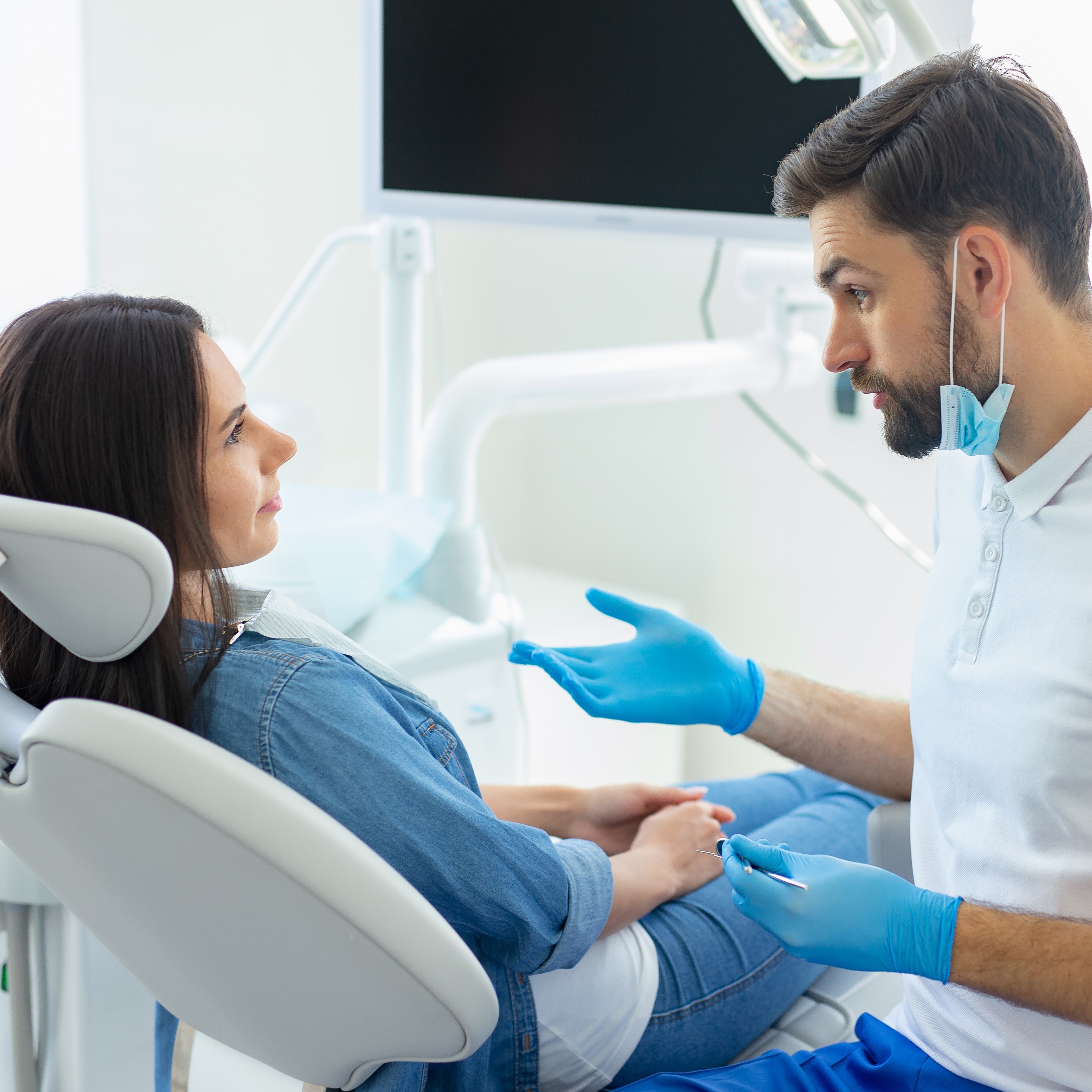11/5/2024 5:36:31 PM
Mouth Cancer Action Month

Mouth Cancer Action Month is organised by the Oral Health Foundation as an annual charity campaign aimed at increasing awareness around mouth/oral cancer amongst the dental industry and patients.
Increased awareness of the signs and symptoms of mouth cancer can support early diagnosis, enabling treatment options to be discussed and cancer treatments to begin promptly.
It’s important to recognise that ‘oral cancer’ can sometimes be used interchangeably with ‘mouth cancer’.
What is Oral Cancer?
Oral cancer can affect various areas of the mouth, the soft tissues, the salivary glands or the jaw bones. It belongs to a broader category of cancers known as head and neck cancers.
Oral cancer has a higher chance of being treated if it is detected in its early stages, when it is small and hasn’t spread.
Dentists and dental care professionals (DCPs) are often able to identify oral cancer early on because the mouth is easily accessible for examination, enabling early diagnosis and treatment.
Types of Oral Cancer
Carcinoma refers to a type of cancer that originates in the inner or outer layer of the body, and its classification is determined by the specific cells where the cancer initiates.
A cancer that develops on the inside or outside layer of the body is called a carcinoma and these types of cancer are categorised by the type of cells the cancer starts in.
Most oral cancers (more than 9 in 10) affect the soft tissues initially, as a lesion called squamous cell carcinoma (SCC).
Verrucous carcinoma is a rare type of squamous cell carcinoma. It's a low-grade or slow-growing type that rarely spreads to distant sites (metastases).
Other, less common types of oral cancer include:
- oral malignant melanoma - where the cancer starts in cells called melanocytes, which can produce melanin
- adenocarcinomas - cancers that develop inside the salivary glands.
The Causes of, and Risk Factors Associated with Oral Cancer
Oral cancer is twice as common in men than in women, but it is important to remember that oral cancer can affect anyone, and, in some people, the exact cause of the cancer is unknown. The factors associated with developing oral cancer include:
- tobacco habits – all tobacco products contain chemicals capable of causing cancer (carcinogens)
- high alcohol consumption – alcohol acts as a solvent for the carcinogens and allows them easier entry into the soft tissues
- tobacco and alcohol – smokers who also drink alcohol to excess are at most risk of squamous cell carcinoma (SCC)
- sunlight – in fair skinned people, sunlight is associated with SCC affecting the lower lip
- diet – research is ongoing into links between SCC and diets high in fats and red meat, or low in vitamin A and iron intake
- genetics – some people are genetically predisposed to developing SCC, as with other types of cancer.
Age, socio-economic deprivation and Human Papillomavirus are also risk factors.
How Dentists Can Help
Dentists play a crucial role in increasing awareness around mouth cancer, and subsequently aiding the early detection. By educating patients on the importance of oral health and the signs of mouth cancer, dentists can increase public awareness and encourage preventative measures. Dental practice waiting areas can be used for informative patient resources on mouth cancer risks and symptoms, like persistent sores, lumps, and colour changes in the mouth.
Routine screenings are integral to early detection. Dentists can incorporate quick, thorough examinations as part of regular appointments, particularly for high-risk patients like tobacco users.
Dentists can make an impact by engaging the broader community by participating in awareness and fundraising events, increasing dental training presentations, and sharing information online can help reach individuals who may not regularly visit a dentist. Dentists also support patients with guidance on general health lifestyle choices, emphasising the importance of avoiding tobacco, limiting alcohol, and maintaining good oral hygiene, all of which reduce the risk of mouth cancer.
Through these initiatives, dentists contribute to early detection efforts and help lower the overall incidence of mouth cancer, making a meaningful difference in their communities.